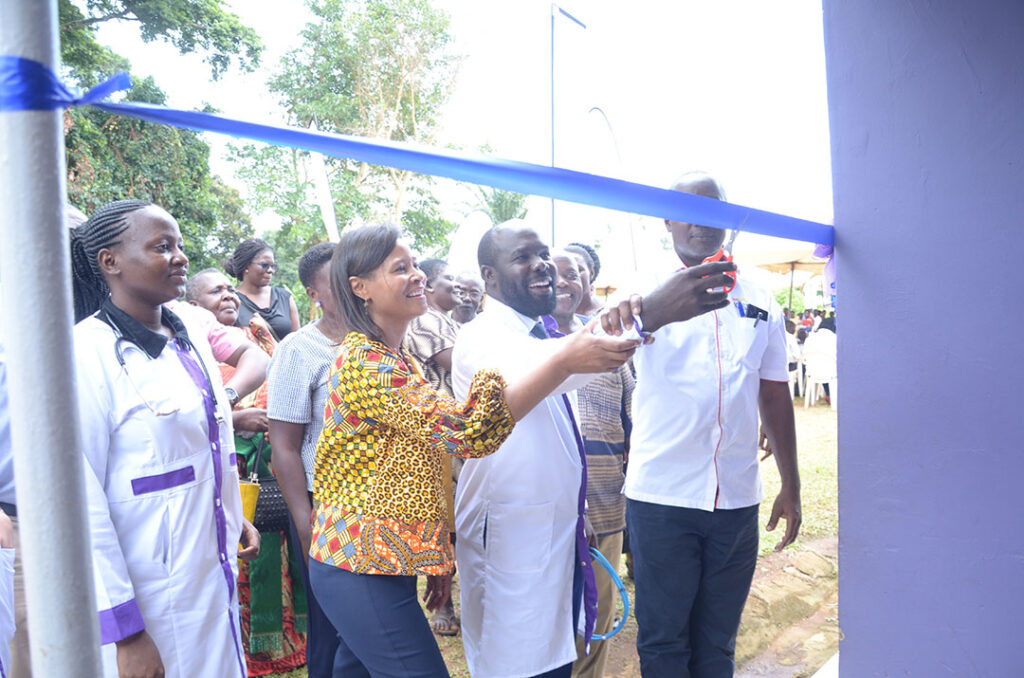ADF STAFF
Two of every three people in Sub-Saharan Africa live without access to electricity. Countless homes and villages are so remote the electrical grid cannot reach them.
But COVID-19 can.
During a crisis like the global pandemic, access to electricity is critical to powering hospitals, clinics and lifesaving equipment.
Across Sub-Saharan Africa, the United States Agency for International Development (USAID) is working to electrify the response to COVID-19 through its sprawling, multilateral, multifaceted Power Africa initiative. Launched in 2013, it brings together more than 170 public and private sector partners with the goal of doubling access to electricity in Sub-Saharan Africa.
“To date, we’ve connected more than 15 million homes, which represents about 74 million people who now have access to electricity,” Power Africa acting coordinator Mark Carrato told ADF. “But we’re more than just a fund. We’re really targeted in what we do, even when there are challenging circumstances such as COVID, even when those parties we work with are rural health clinics that don’t have a good revenue source.”
To that end, Power Africa has redirected more than $4.1 million to support the off-grid energy sector; to assess power loads for hospitals, clinics and critical care facilities in Nigeria; and to support regulators and utilities struggling with the pandemic in Southern Africa and West Africa. Similar redirections are planned for Power Africa programs in East Africa.
“Nothing and everything has changed at the same time,” Carrato said of the impact of COVID-19 on Power Africa’s mission. “It’s what we’ve been doing all along. It’s all about putting that megawatt on the grid, connecting those households whether they’re on the grid or off the grid, which is a big part of our program.
“All of that is absolutely as critical as it ever was, and harder, and more important for a lot of people. As you look at the economies teetering, you know energy is the foundation — whether it’s economic growth, kids in school, health care electrification — it all takes cost-effective, reliable energy.”
In Kenya and Ethiopia, Power Africa has worked to electrify about 800 hospitals. Rural clinics, businesses and homes have seen off-grid energy solutions, as Power Africa worked with governments and regulatory bodies in both countries to have solar home systems deemed an essential service throughout lockdowns.
Most of the redirected $4.1 million is going to support Power Africa’s off-grid endeavors.
“Minigrids are the technology that will allow us to electrify thousands of unelectrified health centers across Sub-Saharan Africa,” Aaron Leopold, CEO of the Africa Mini-grid Developers Association (AMDA), told Power Energy Internationalmagazine. “There is a huge risk that every single city in Africa is being overrun because of the coronavirus with people who need medical care, that should have received medical care in their rural communities, but there are not adequate facilities.
“The decentralized nature of minigrids is going to show its value this year.”
In Nigeria, Power Africa’s partner companies have helped four isolation centers and three government testing laboratories, as well as other critical health care facilities provide essential services to the COVID-19 response.
In Uganda, Power Africa supported a doctor who founded a modern health care facility on Bugala Island. Dr. James Muwonge Ssuubi attended one of Power Africa’s workshops in 2019 and now is connected to the island’s minigrid.
“It’s a great example of how our targeted assistance is really working,” Carrato said. “And now he’s fighting COVID-19 in a rural corner of Uganda.”
Despite the pandemic’s toll, Carrato says he’s optimistic about powering Africa’s response to and recovery from COVID-19, because Power Africa was created to deal with just these sorts of issues.
“It’s something all of us have never seen before at this magnitude, and to some extent I’m super-grateful we were built to take on this crazy curveball no one saw coming,” he said. “We knew Africa was under-electrified. And now people really know why this is so important, especially when they need to call on electricity to help their communities get through such an existential threat, whether that’s providing the health care itself or building back economically.
“So, yeah, I’m optimistic we’ll find the answers and continue to push. It’ll be challenging no doubt. But that’s OK. Challenges are what drive us.”

